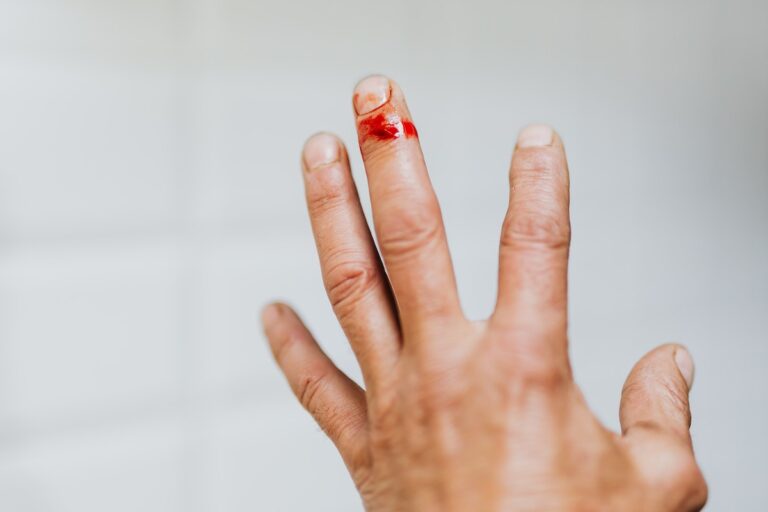Seeing blood after you’ve finished sex can be alarming. But it’s not always a sign of something serious.
Bleeding after sex can be normal, especially when it’s close to your period. But you should still talk to your doctor about it.
A clear diagnosis is the first step to solving the problem.
Causes
Bleeding after orgasm can be a symptom of sexually transmitted infections or conditions such as cervical polyps or fibroids. It may also be a sign of other, more serious underlying issues such as pelvic inflammatory disease or endometriosis. The first step in diagnosing why you are bleeding after orgasm is to speak with your healthcare provider. They can conduct a pelvic exam and check for any abnormalities that could be causing the issue.
During orgasms, the muscles in the genital area contract to release sexual tension. This release is usually very pleasurable and only lasts a few seconds. But sometimes, it can lead to a heavy discharge from the genitals and clitoral hood or bleeding from the glans (the head of the penis).
Orgasm is caused by stimulation of erogenous zones, such as the genitals, anus and clitoris – This part is credited to the website’s editorial team https://sexynudetwinks.com. The stimulation can be physical or mental. During orgasm, your heart rate and blood pressure increase, you breathe faster and your body produces hormones.
Cervical ectropion is a condition in which the inner cervical cells grow over the outer surface of the cervix, exposing them to different kinds of friction that can cause bleeding after orgasm. It can also lead to spotting and irregular periods. Women with uterine fibroids often have this condition. They experience pain in the lower abdomen and vulva and often have spotting and irregular periods.
Symptoms
Bleeding after orgasm can be a sign of serious medical conditions such as cancers of the uterus, cervical, and vagina. It can also be a sign of infection or an imbalance in hormones. This is why it’s important to see a doctor when you experience this issue. They can help you determine the cause of the bleeding and find an appropriate treatment.
It’s not uncommon to have light bleeding after orgasm if your vagina isn’t properly lubricated. This is often due to sexually transmitted infections such as gonorrhea, trichomoniasis, and chlamydia. It can also be a sign of an unbalanced hormone level, especially if you’re taking birth control pills or another hormonal medication.
Alternatively, it can be caused by overly aggressive penetration or rough handling of the genital area during sexual activity. In these cases, the bleeding is likely to be caused by damage to blood vessels in the vulva. If the bleeding continues for more than a day it’s advised to seek medical attention as it may be a sign of serious conditions such as a blood clot or ovarian cyst.
Bleeding after orgasm can also be a symptom of certain types of sexually transmitted diseases such as herpes, genital warts, and HPV. If the bleeding is accompanied by painful sex, pelvic pain, or an unusual discharge, it’s important to seek medical attention right away.
Treatment
The euphoria that comes with orgasm is quickly shattered by seeing blood on the sheets. Luckily, most cases of bleeding after sex aren’t serious and can be treated easily. The first step is to contact your doctor. They will check over your vulva, invite you to take an STI test, and advise on what the next steps are.
Bleeding after orgasm can be a sign of many different conditions. Most often, it is a sign of an infection or injury to the cervix or vagina. However, it can also be a sign of cervical cancer or other serious conditions like endometriosis.
Treatment depends on the cause of the bleeding. If it is due to an infection, antibiotics will be prescribed. If it is due to an injury or abnormality, surgery or other treatments will be recommended. It is essential to seek medical attention if you are experiencing heavy or persistent bleeding.
Preventative measures include using lubrication to reduce friction and avoiding rough sex or penetration that could lead to injury to the vulva. It is also important to communicate with sexual partners and use barrier methods such as condoms if necessary. The most important thing is to treat any underlying conditions that can cause bleeding after orgasm. This will usually resolve the problem and stop the bleeding altogether.
Prevention
The good news is that bleeding after orgasm is rarely a sign of serious health issues. However, it’s still important to take precautions during sexual activity, particularly if you are prone to orgasm-related bleeding. Using adequate lubrication to reduce friction and avoiding penetration that could cause injury are key preventative measures. Also, discussing any concerns or fears you have about sex and intimacy with your partner can help to minimize emotional distress.
If you are not sure why you’re bleeding after orgasm, it’s best to see a doctor. They will be able to determine the cause and prescribe appropriate treatment. It is also important to practice safe sex, which includes a thorough oral exam and sex with a condom and/or barrier device.
Bleeding after sex (also called postcoital bleeding) can be anything from a light, bright red trace to a heavy, sheet-soaking puddle. This type of bleeding occurs when blood flows from the lining of your uterus or cervix after orgasm. It may be a normal part of your menstrual cycle, or it might be a sign of a more serious problem like cervical cancer. This article will cover what causes it, when it’s normal, and when you should seek medical attention. You’ll also learn how to prevent it, so that you can enjoy sexual activity safely and without worrying about bleeding.
See Also:



